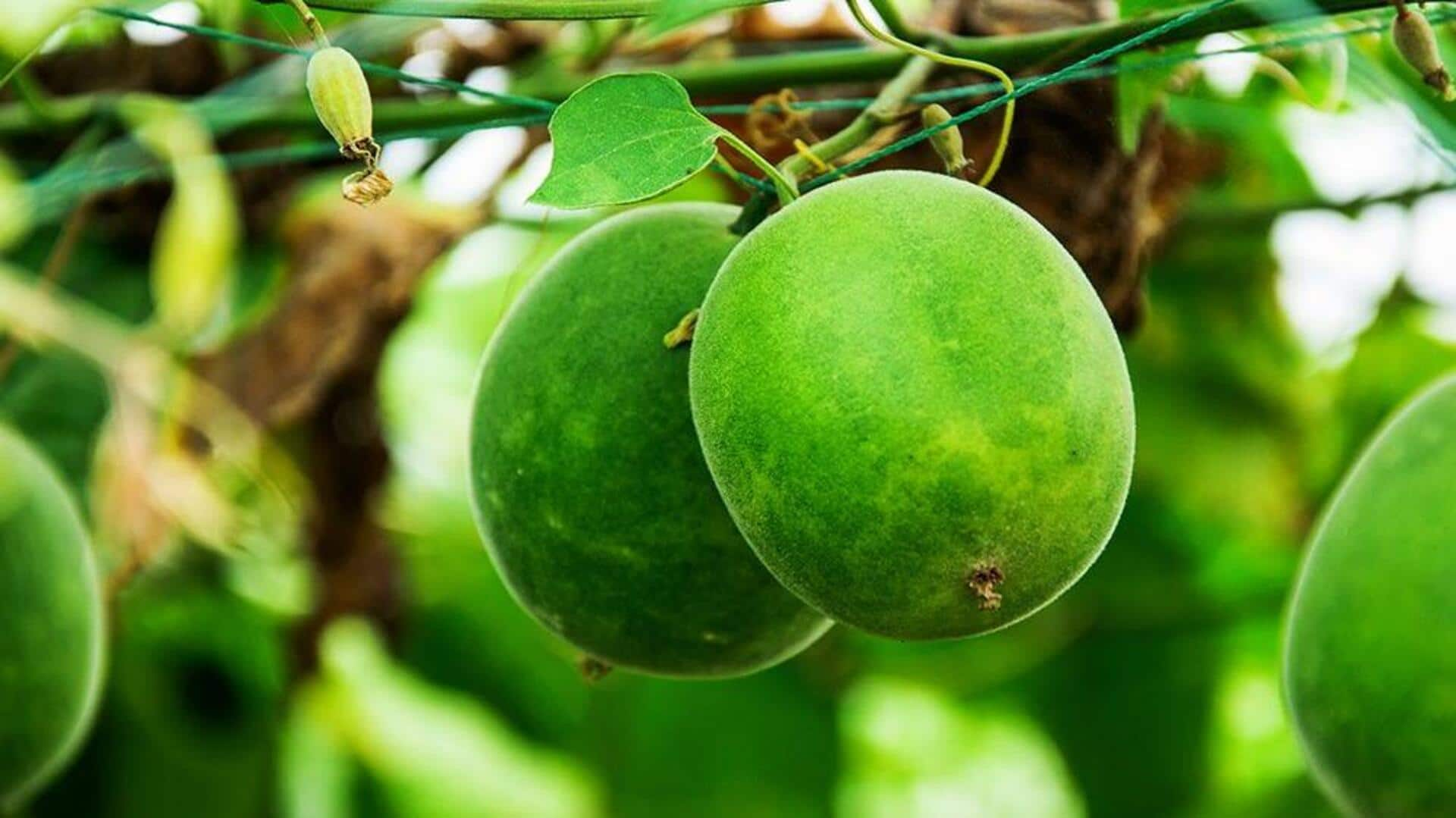
Discover unique health perks of monk fruit
What's the story
Monk fruit, a small green gourd native to southern China, has been used for centuries in traditional medicine. But recently, the fruit has gained popularity as a natural sweetener due to its zero-calorie content and potential health benefits. Unlike artificial sweeteners, monk fruit extract is taken from the fruit itself and contains antioxidants called mogrosides. These compounds are believed to provide various health benefits without affecting blood sugar levels.
Natural sweetener
Zero-calorie sweetening alternative
Monk fruit extract offers sweetness without the calories associated with regular sugar. This makes it a desirable choice for anyone wanting to cut back on calories but still enjoy sweetness in their food. The lack of calories can be especially useful for people controlling weight or keeping track of their caloric intake.
Antioxidant benefits
Antioxidant properties of mogrosides
Mogrosides, the active compounds in monk fruit, have antioxidant properties that can help fight oxidative stress in the body. Oxidative stress is associated with a number of chronic diseases and aging processes. By adding monk fruit to the diet, one can get these antioxidants' protection against cellular damage.
Glycemic control
Blood sugar management potential
Monk fruit also doesn't raise blood sugar levels as it contains no carbs or sugars that impact glucose metabolism. This makes it ideal for diabetics, or even those who want to keep their blood sugar levels stable. It provides a way to enjoy sweetness without losing glycemic control.
Inflammation reduction
Anti-inflammatory effects of monk fruit
Some studies indicate that monk fruit may have anti-inflammatory properties, thanks to its mogroside content. Chronic inflammation is linked to several health problems, including heart disease, arthritis, etc. Eating foods with anti-inflammatory properties, such as monk fruit, could possibly help mitigate the risks of inflammation over time.